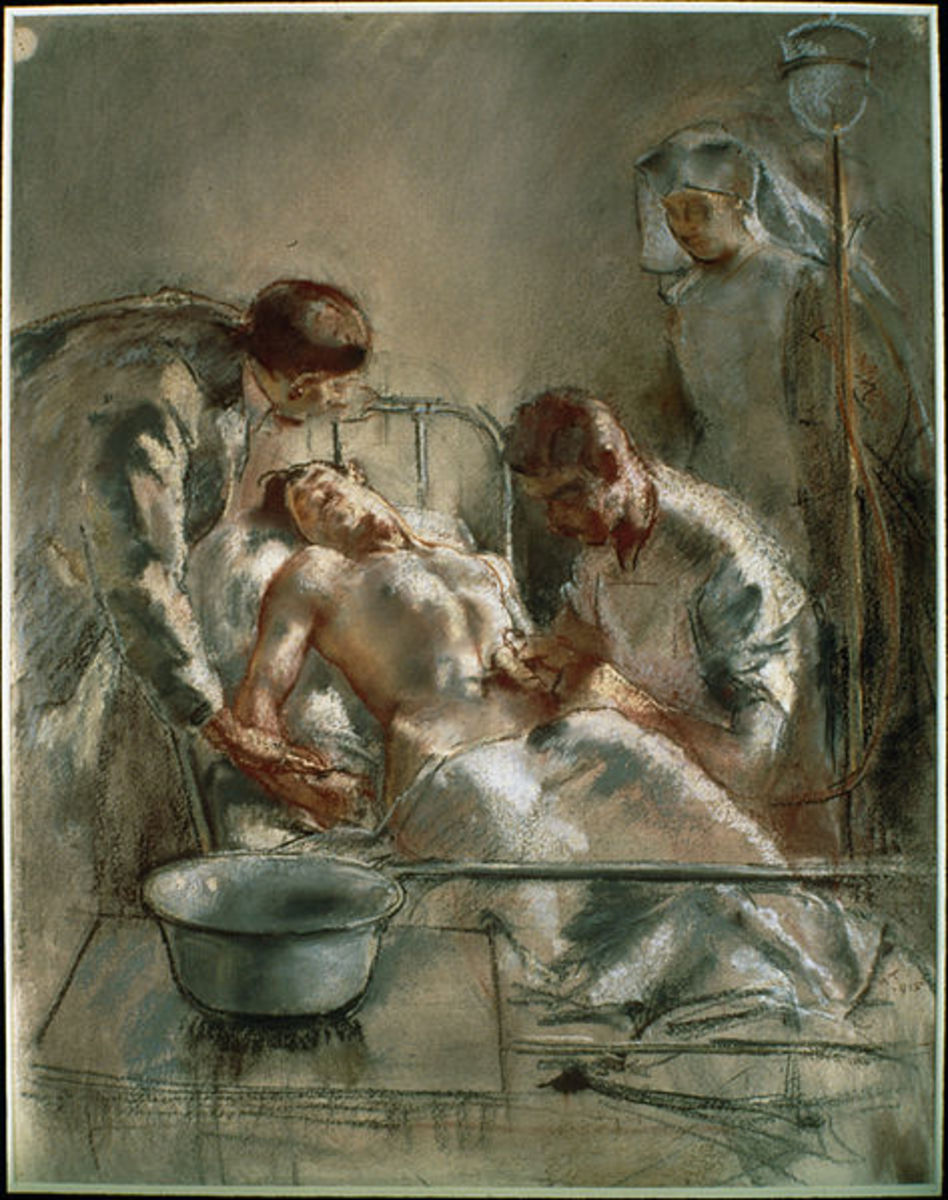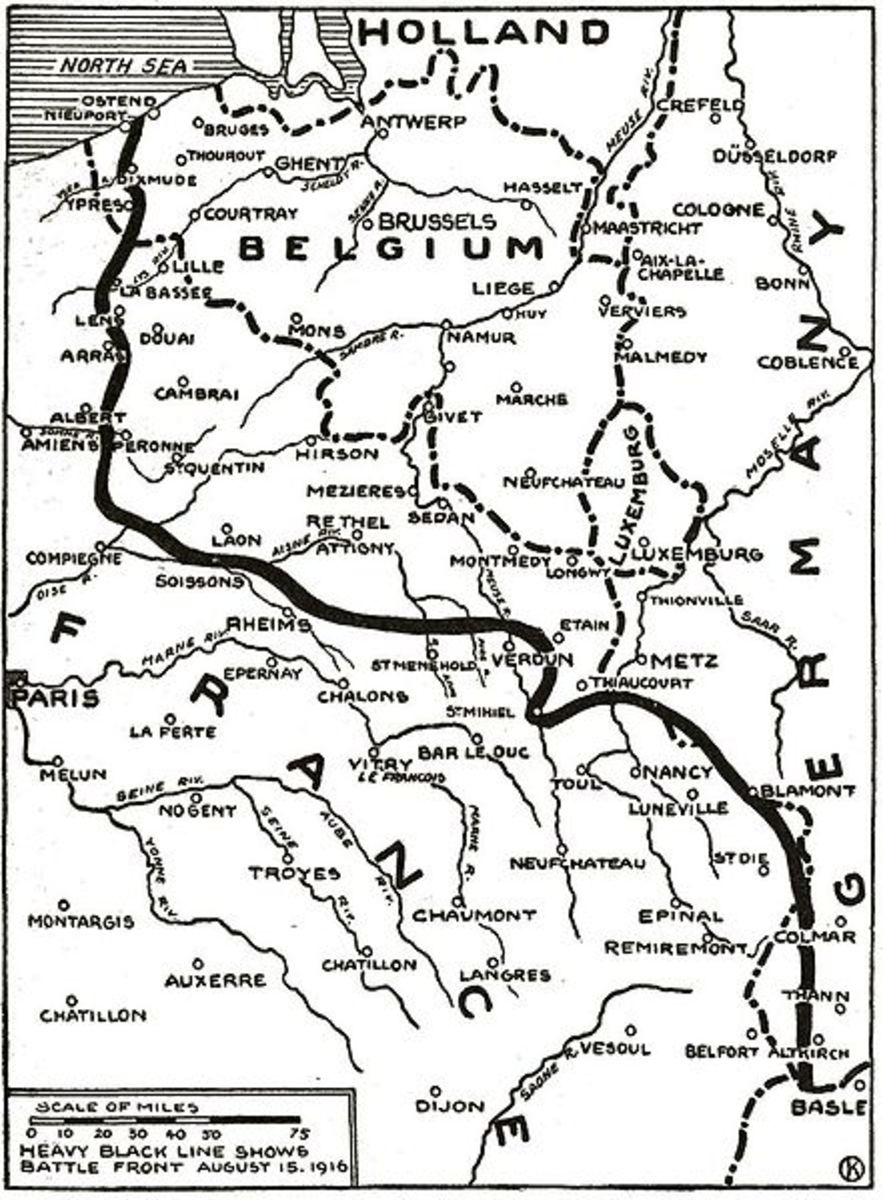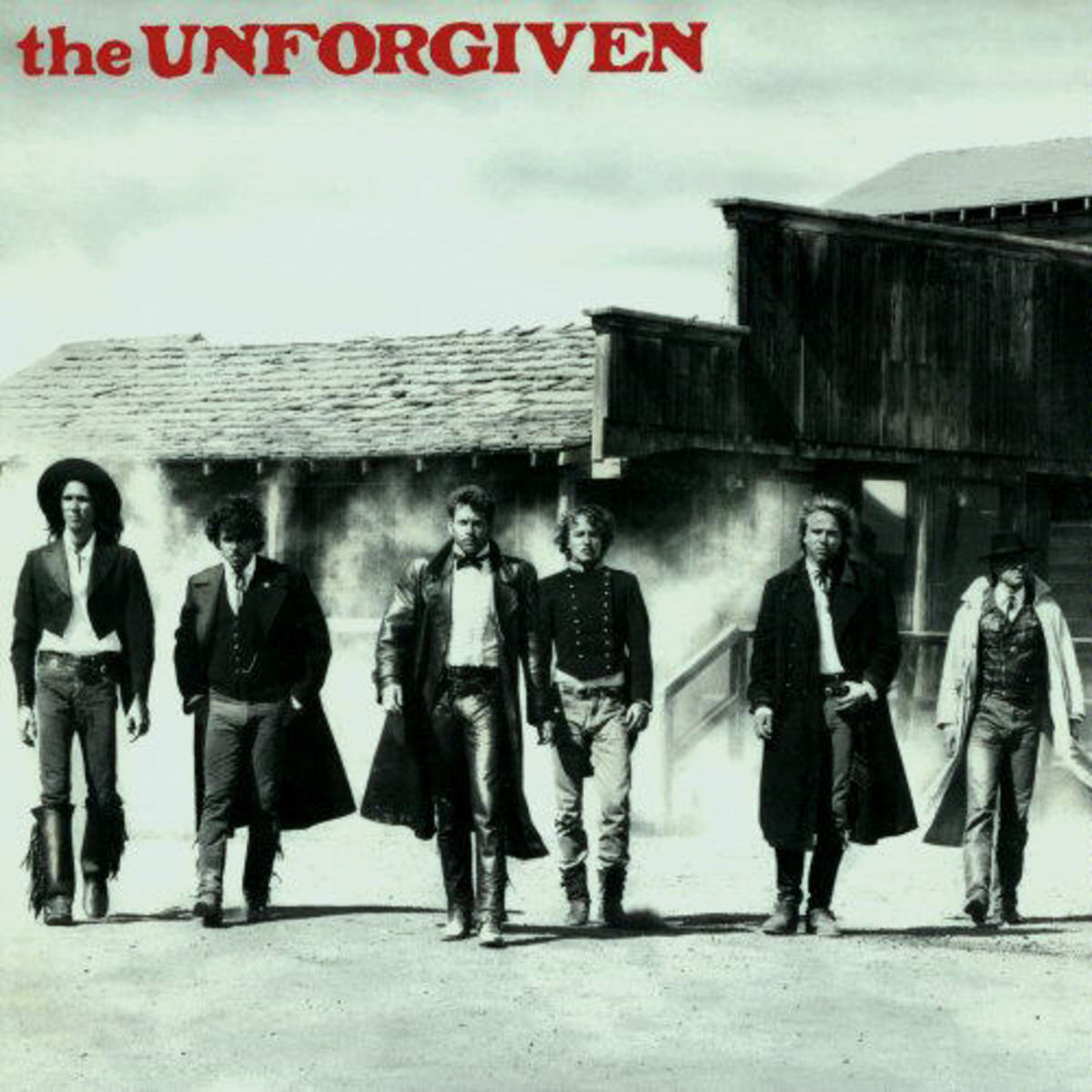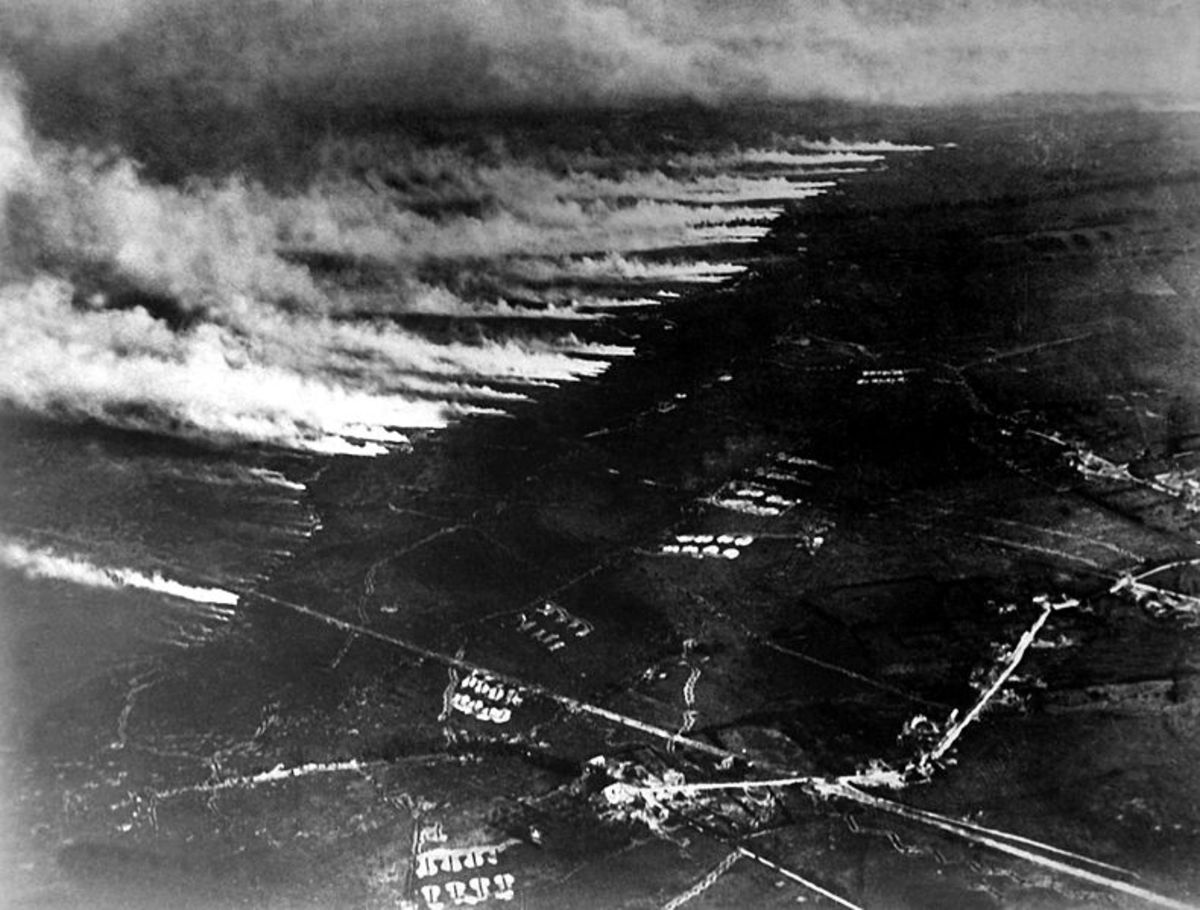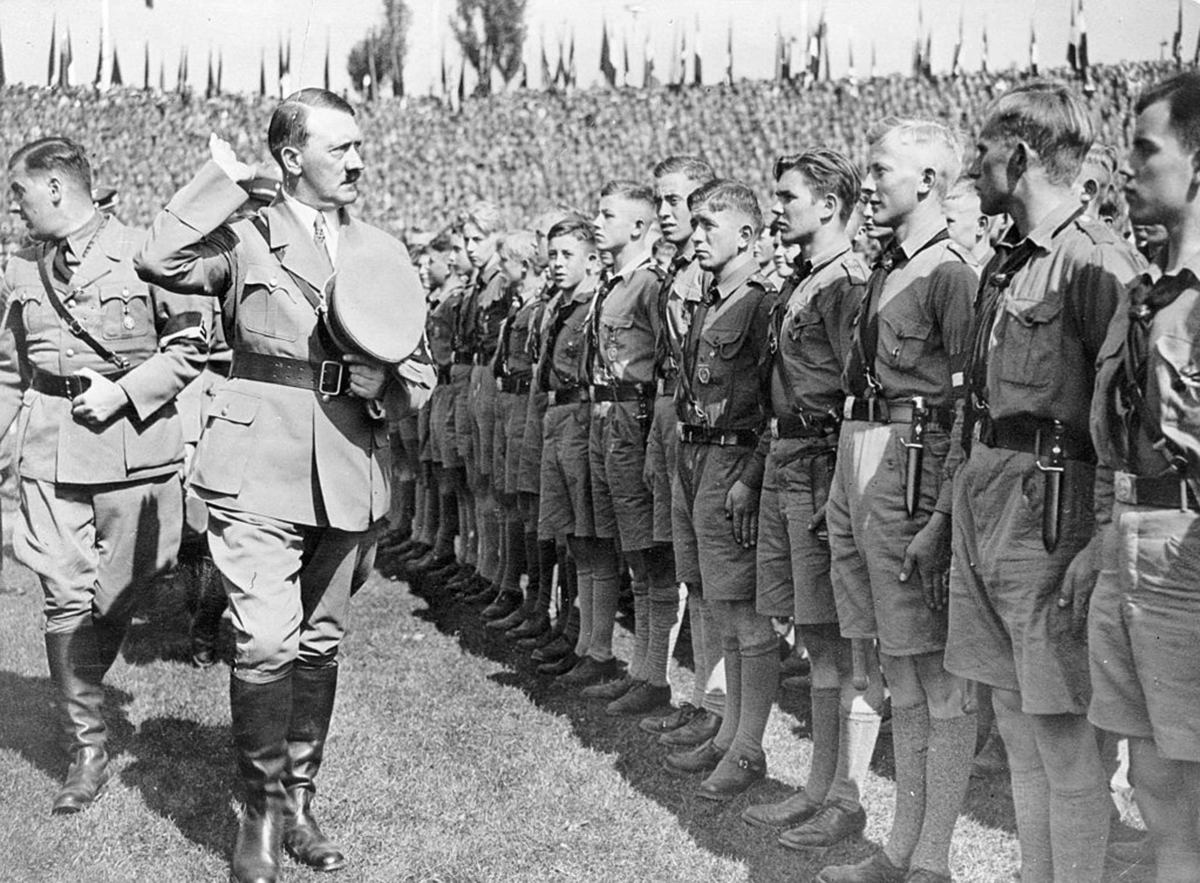All Quiet on the Western Front by Erich Maria Remarque

All Quiet on the Western Front by Erich Maria Remarque.
All Quiet on the Western Front is a story of German soldiers in WW I. The protagonist, Paul Baumer, is a 19-year-old private in the German army occupying the French-German front. Through Baumer, Erich Remarque relates the daily lives of the German trench soldier from his own recollections of military service. Remarque provides a graphically wrenching picture of a story reminiscent of Saving Private Ryan's first 20 minutes of film. He takes a decidedly antiwar position throughout his book. This paper will present a summary of the novel and a description of what the WWI experience for solders, families, and the men they fought.
Paul Baumer gladly volunteered to serve the Kaiser with schoolmates after listening to a patriotic speech made by Mr. Kantorek, a respected faculty. However, ten weeks of inhuman basic training from Corporal Himmelstoss, along with harsh life at the front of the war convinced the young men that they had made a mistake. WWI was not patriotic or honorable - it was hell. The older generation was using the younger as fodder in a war for ignoble national interests. This book successfully shows real life war experiences in the trenches as something to avoid. Even friendship cannot redeem this time spent in horror, filth, and fear. Baumer increases his awareness that the enemy is not an enemy, just also the pawns of their own leaders.
After just two weeks of batter, Baumer's company is only 80 survivors out of 150. The survivors immediately want double rations. Paul's group visits a soldier friend with a new leg amputation. He is dying of gangrene and Muller claims his boots. It is all a matter of a detached survival, one's emotions kept beyond one's own reach until after the war, if ever. Baumer and his friends also become concerned that commissioned officers receive better food than enlisted men. The
privates begin to think that armies should be abolished and leaders of nations should do their own fighting, face to face with clubs

The Christmas Truce of WWI
- Christmas in a War Zone
The story of the Christmas Truce at the Western Front on December 25, 1914.
In a mission to at the French front, Baumer's group sees the buried blown out of their graves, and soldiers falling dead among them. After surviving all this gore, Paul's group also has to kill lice and avoid giant rats. In another skirmish, soldiers are literally blown apart. Dog-sized rats chew on bodies and living men lying wounded. At home on leave, Paul does not know how to act and feels depressed. He feels that all soldiers, Germans, French, and Russians, are good men. World leaders carry the grudges, not the people. The people are hurt by war, not helped. All the men will be ruined and unable live and work in a non-war venue.
As the Germany begins to fail, all of Paul's comrades die in combat, except one that deserts. Another is murdered by a head wound as Paul carries him off the battlefield. In September 1918, Paul is the last of the friends alive, but as surrender becomes imminent, he suffers mustard gas poisoning. In recovery he reflects that all he knows is war, which will not help him in peacetime. Finally, in October 1918, on a day of scant activity, Baumer is killed and the daily military report contains only one line: "All quiet on the Western Front."
Wartime was horrible for German soldiers in WWI. This war provided psychiatry with the term shell shock, the original name for post traumatic stress disorder. Both the Central Powers and the Allies suffered the psychological aftermath of heavy shells bursting around them and artillery fire: jumpiness, nightmares, hallucinations, flashbacks, hearing loss, paranoia and more. Soldiers lost friends in battle, some shot dead in their very arms. Many suffered gaping body wounds,
decapitations, and amputations that killed or permanently maimed them. Survivors who witnessed this suffered survivor guilt, and there was a lot of permanent damage done to living combatants by this war. All sides suffered. The physical and emotional problems incurred manifested in alcoholism, shell shock, severe mental illnesses such as major depression, the inability to hold a job, and an increased divorce and suicide rate among German soldiers as well as the Allies returning from the front. National recovery after WWI took much effort and time, weighing heavily on the people of all countries involved. Many veterans could not function in daily life. Many families lost their sons, brothers, and husbands to death or resulting mental illness. This also led to reduced income-earning capacity and poverty. Many youth went from school to war and were never and to work or marry afterward. Many no longer trusted their governments and people who supported soldiers also lost this trust. For Baumer and Remarque, war hurt all of the common people and their families on all sides.
WWI was not the war to end all wars as it was proclaimed, because many more wars have been fought since those days. It was, however, a war that changed people forever.


![The World Wars [DVD + Digital]](https://m.media-amazon.com/images/I/51H5izqtWGL._SL500_.jpg)
